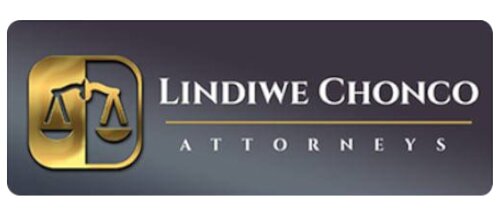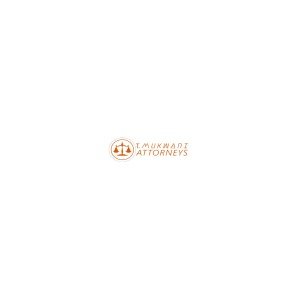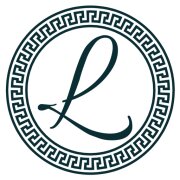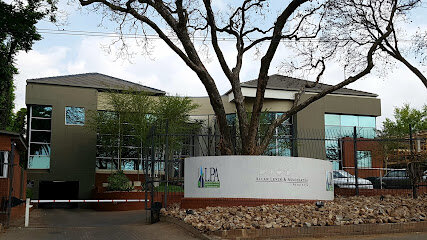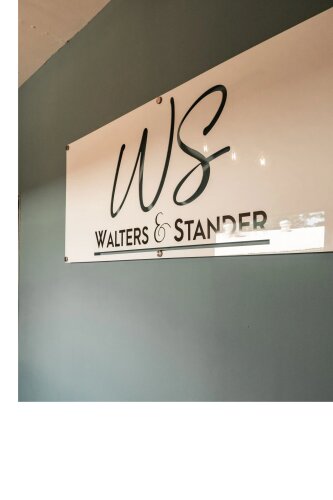Best General Litigation Lawyers in Johannesburg
Share your needs with us, get contacted by law firms.
Free. Takes 2 min.
List of the best lawyers in Johannesburg, South Africa
South Africa General Litigation Legal Articles
Browse our 2 legal articles about General Litigation in South Africa written by expert lawyers.
- South Africa Estate Planning and Inheritance for Foreigners
- South Africa practices "Freedom of Testation," allowing you to distribute your assets to anyone you choose, regardless of the "forced heirship" laws in your home country. A separate South African will is the most efficient way to manage local immovable property and prevents administrative delays at the Master of the... Read more →
- Suing for Medical Malpractice in South Africa - Legal Guide
- Medical malpractice claims in South Africa fall under the law of delict, requiring proof of negligence, causation, and actual damages. The standard prescription period for filing a claim is generally three years from the date the patient became aware of the negligence. Expert medical testimony is mandatory to establish whether... Read more →
About Litigation Law in Johannesburg, South Africa
Litigation in Johannesburg, South Africa, is an integral part of the legal system, encompassing the process of resolving disputes in a court of law. As a major city with a thriving economy, Johannesburg sees a diverse array of litigation cases ranging from commercial disputes to personal injury claims. The legal framework is primarily guided by South Africa's common law traditions, influenced by European civil law and indigenous legal principles. This legal landscape ensures that litigants have access to a fair, transparent, and efficient judicial process, supported by the country's robust court system.
Why You May Need a Lawyer
There are numerous situations where individuals or businesses might require the assistance of a litigation lawyer in Johannesburg. Common scenarios include disputes over contracts, landlord-tenant disagreements, property issues, corporate conflicts, and personal injury claims. Additionally, legal representation may be necessary for defamation cases, family law matters such as divorce settlements, and employment-related disputes. A lawyer can provide crucial guidance, help mitigate risks, and ensure that your rights are duly protected throughout the legal proceedings.
Local Laws Overview
Johannesburg operates under South Africa's legal framework, which provides several laws relevant to litigation, including the Constitution, which is the supreme law of the land. The legal system is characterized by several key statutes such as the Magistrates' Court Act and the High Court Act, which establish guidelines for procedural fairness and jurisdictional requirements. Additionally, the Promotion of Access to Information Act (PAIA) and the Protection of Personal Information Act (POPIA) can be pertinent in cases involving privacy and data-related disputes. Understanding the procedural rules and the evidentiary requirements is essential for effective litigation in Johannesburg.
Frequently Asked Questions
What is the litigation process in Johannesburg?
The litigation process typically involves initiating a legal action by filing a complaint, serving court papers to the opposing party, engaging in discovery procedures, pre-trial conferences, and ultimately, a trial. Post-trial motions and appeals may follow if necessary.
How long does litigation take in Johannesburg?
The duration of litigation can vary greatly depending on the complexity of the case, the court's schedule, and compliance with legal procedures. Simple cases might be resolved in a few months, while more complex matters could take years.
What costs are involved in litigation?
Costs can include court filing fees, attorney fees, expenses for expert witnesses, and other administrative costs. Some lawyers may work on a contingency basis, while others charge hourly or fixed fees.
Can I represent myself in court?
While individuals have the right to represent themselves in court, it is generally advisable to hire a lawyer due to the complexities of legal procedures and the strategic nature of litigation.
What is the role of a litigation lawyer?
A litigation lawyer advises clients on legal rights and strategies, represents them in court, and handles all procedural aspects of a case, including investigations, negotiations, and settlement discussions.
Are alternative dispute resolution (ADR) methods available?
Yes, ADR methods such as mediation and arbitration are available and often encouraged to resolve disputes quicker and with less expense than traditional litigation.
Can a litigation outcome be appealed?
Yes, a party dissatisfied with a court's decision can appeal to a higher court. However, there are strict timelines and procedural requirements that must be followed.
What should I bring to a consultation with a litigation lawyer?
Bring any relevant documents, such as contracts, correspondence, and any court notices. Providing a detailed factual background will assist the lawyer in assessing the case.
How can I find a good litigation lawyer in Johannesburg?
Consider seeking recommendations from trusted sources, conducting online research for lawyer reviews, or consulting the Law Society of South Africa for referrals. Verify the attorney's experience and specialty in litigation.
What are the risks of litigation?
Risks include the possibility of an unfavorable judgment, incurring substantial legal costs, and the time-consuming nature of court processes. Litigation can also strain personal and business relationships.
Additional Resources
There are several resources available for individuals seeking guidance in litigation. The Legal Aid South Africa provides support for those who cannot afford representation. The South African Law Reform Commission is another valuable resource for understanding legislative changes and proposals. The Johannesburg Society of Advocates is a key organization that can provide information about qualified advocates practicing in the area.
Next Steps
If you find yourself needing legal assistance in litigation, the first step is to assess your case's specifics and gather necessary documentation. Consult a legal professional to obtain tailored advice for your situation. Take advantage of initial consultations offered by many law firms to find a lawyer who specializes in your area of need and whom you feel comfortable working with. Remember that timely engagement can be crucial, so act promptly to ensure your rights are protected and your case is handled effectively.
Lawzana helps you find the best lawyers and law firms in Johannesburg through a curated and pre-screened list of qualified legal professionals. Our platform offers rankings and detailed profiles of attorneys and law firms, allowing you to compare based on practice areas, including General Litigation, experience, and client feedback.
Each profile includes a description of the firm's areas of practice, client reviews, team members and partners, year of establishment, spoken languages, office locations, contact information, social media presence, and any published articles or resources. Most firms on our platform speak English and are experienced in both local and international legal matters.
Get a quote from top-rated law firms in Johannesburg, South Africa — quickly, securely, and without unnecessary hassle.
Disclaimer:
The information provided on this page is for general informational purposes only and does not constitute legal advice. While we strive to ensure the accuracy and relevance of the content, legal information may change over time, and interpretations of the law can vary. You should always consult with a qualified legal professional for advice specific to your situation.
We disclaim all liability for actions taken or not taken based on the content of this page. If you believe any information is incorrect or outdated, please contact us, and we will review and update it where appropriate.




